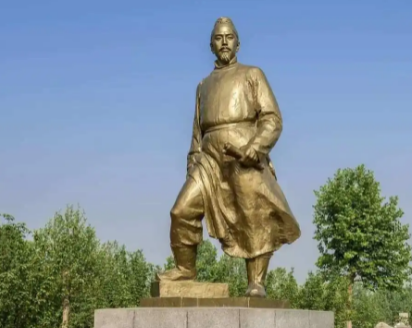In Chinese history, Zeng Guofan was an extremely influential figure. As an important general and politician in the late Qing Dynasty, he played a key role in suppressing the Taiping Rebellion and ultimately gained control of a huge military power. However, despite having strong strength and resources, Zeng Guofan never chose to declare himself emperor. This article will explore the main considerations behind it.

First, it must be understood that Zeng Guofan was deeply influenced by Confucian culture and loyal to traditional moral and political orders. In Zeng Guofan's value system, loyalty to the emperor and patriotism are the core beliefs. He firmly believed that supporting the Qing emperor was the correct way to maintain national unity and social stability. Declaring oneself emperor would mean a complete departure from this tradition, which was contrary to his values.
Second, even if Zeng Guofan had ambitions to declare himself emperor, such a move would have brought tremendous political risks. China at that time was facing both internal and external troubles, including rebellions and unrest from within, as well as pressure from foreign powers. Declaring oneself emperor could have led to more internal conflicts, and even triggered new wars, exacerbating the division and chaos of the country.
Thirdly, despite Zeng Guofan's control of a huge army, maintaining an army requires huge economic resources. At that time, the financial situation of the Qing government was tense, and the people were exhausted. If Zeng Guofan declared himself emperor, he would face a greater economic burden and difficulty in guaranteeing the support of various warlords, posing a real threat to his rule.
Fourth, based on historical precedents, usurpers often find it difficult to maintain power for a long time, which was a lesson that Zeng Guofan could not ignore. He had a profound understanding of history and understood that declaring himself emperor could make him the target of everyone's attacks, ultimately leading to a short-lived regime and a tragic personal ending.
Lastly, it cannot be ignored are Zeng Guofan's personal qualities and aspirations. Historical records show that he was a leader who valued personal cultivation and emphasized collective interests. His aspiration may not have been to reach the pinnacle of power, but to achieve national stability and national rejuvenation.
In conclusion, Zeng Guofan's decision not to declare himself emperor was determined by his loyalty to traditional values, his clear understanding of political risks, his rational assessment of military and economic realities, his profound understanding of historical lessons, as well as his personal qualities and aspirations. In that tumultuous era, he chose to support the Qing Dynasty's rule instead of declaring himself king, a decision that reflected his deep consideration of the fate of the country and the nation.
Disclaimer: The above content is sourced from the internet and the copyright belongs to the original author. If there is any infringement of your original copyright, please inform us and we will delete the relevant content as soon as possible.
































